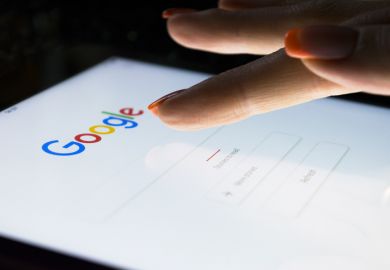Concerns about journals’ ability to protect scientific integrity in an increasingly litigious age may have been assuaged somewhat by two legal rulings earlier this month.
One concerns Mário Saad, a professor of medicine at Unicamp, the State University of Campinas, in Brazil, who is suing the American Diabetes Association for libel after its flagship journal, Diabetes, published editorial expressions of concern about four of his papers.
The expression, first published online in February, warns of “potentially duplicated and manipulated images” in the papers, one of which has been cited more than 400 times.
Professor Saad, who retracted a paper in 2013 for plagiarism, and published a very long correction to another earlier this month, argues that the expression has damaged his reputation, and his demands include compensation and a ban on the papers being retracted.
His submission, published by Retraction Watch, flags up an investigation carried out by Unicamp last year into two of the papers, which found that while their “image manipulation options” were “not adequate”, there had been no intention to mislead and the conclusions were “not artificially strengthened by the incorrect images”. However, he claims that the association disregarded that conclusion and has asked the university to look again at the complaints.
The defamation claim remains unresolved. But Professor Saad failed in an attempt to prevent the expression of concern from being published in the hard copy of Diabetes at the end of February, after a judge in the US ruled that such a move would violate free speech.
A subsequent attempt to have the online expression removed was also thrown out by the same district court in Massachusetts on 6 March, on the grounds that the likelihood of success of Professor Saad’s libel claim was not high enough to justify such an “extraordinary remedy”.
Meanwhile, according to Retraction Watch, PubPeer, the post-publication peer review website, has all but seen off efforts to force it to reveal the identities of contributors who questioned the work of Fazlul Sarkar, a distinguished professor in cancer research at Wayne State University in Detroit.
As Times Higher Education has previously reported, Professor Sarkar claims that the comments caused the withdrawal of a lucrative job offer, and wants to sue those who made them. But a judge in the case agreed to protect the identities of all but one of the posters; the case regarding the last was due to be heard on 19 March.
Register to continue
Why register?
- Registration is free and only takes a moment
- Once registered, you can read 3 articles a month
- Sign up for our newsletter
Subscribe
Or subscribe for unlimited access to:
- Unlimited access to news, views, insights & reviews
- Digital editions
- Digital access to THE’s university and college rankings analysis
Already registered or a current subscriber? Login





